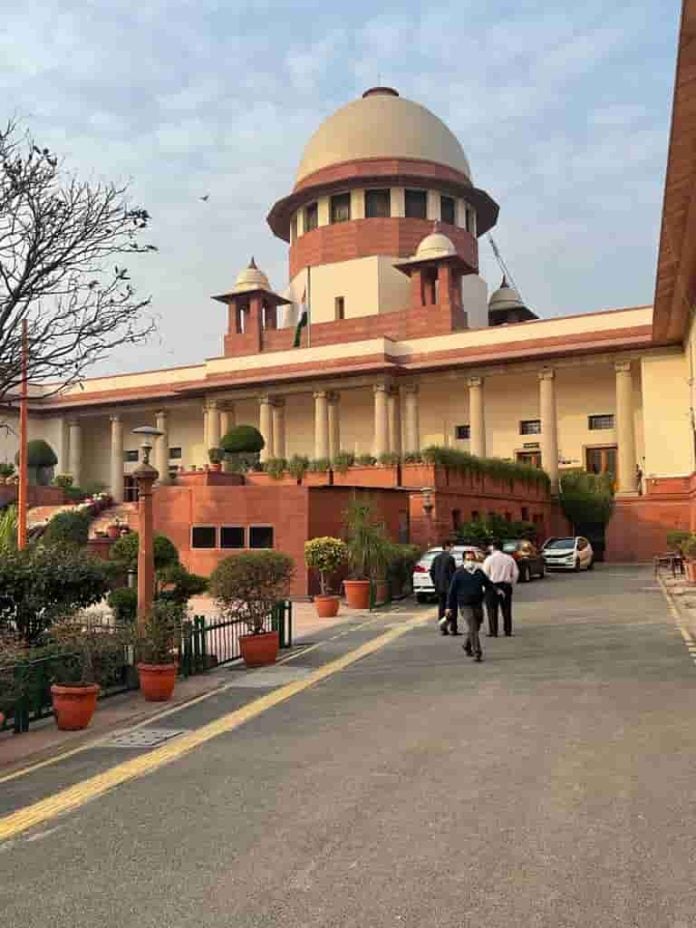The Supreme Court will deliver its verdict on whether same-sex marriages should be legally recognised in India on Tuesday.
The Constitution Bench of Chief Justice of India (CJI) D.Y. Chandrachud, Justice Sanjay Kishan Kaul, Justice S. Ravindra Bhat, Justice Hima Kohli and Justice P.S. Narasimha, after conducting a marathon 10-day hearing, had reserved its verdict on May 11.
The Apex Court began hearing the 20 petitions on the matter on April 18.
The pleas were filed by various same-sex couples, transgender persons and LGBTQIA+ activists challenging the provisions of the Special Marriage Act 1954, Hindu Marriage Act 1955 and the Foreign Marriage Act 1969 to the extent that these legislations did not recognise non-heterosexual marriages.
During one of the hearings, the Apex Court had observed that it will confine the issue only to the Special Marriage Act and will not touch personal laws.
The Union of India, which was a party to the case, had initially challenged the maintainability of the petitions on the grounds that the issue fell in the legislative domain.
However later, it agreed to confer certain rights to the couples of same gender, which were short of legal recognition as marriage.
The Apex Court had asked the Central government whether certain executive instructions could be issued to ensure that same-sex couples had access to welfare measures and social security such as granting them permission to open joint bank accounts and name their partner as nominee in life insurance policies, PF and pension.
The Constitution Bench had further asked the Union of India whether a declaration of right to marry for same-sex couples could be issued, without interfering with the existing statutes.
The counsels for the petitioners had sought replacement of words ‘husband’ and ‘wife’ in the Special Marriage Act in a gender neutral manner as ‘spouse’ or ‘person’.
The Union government opposed the argument, stating that the Special Marriage Act was enacted with an altogether different purpose in mind and when the same was passed in 1954, the legislature never contemplated bringing homosexual couples under its ambit.
The Central government also said that such an interpretation would disrupt various other legislations which dealt with adoption, maintenance, surrogacy, succession and divorce.
The National Commission for the Protection of Child Rights has recently intervened in the matter, expressing concerns about allowing same-sex couples to adopt a child.
The Delhi Commission for the Protection of Child Rights, on the other hand, supported the petitions and backed the right of same-sex couples to adopt.
The petitioners were represented by Senior Advocates Mukul Rohatgi, Dr Abhishek Manu Singhvi, Raju Ramachandran K.V. Vishwanathan, Dr. Menaka Guruswamy, Jayna Kothari, Saurabh Kirpal, Anand Grover and Geeta Luthra, along with Advocates Arundhati Katju, Vrinda Grover, Karuna Nundy and Manu Srinath.
Solicitor General Tushar Mehta appeared for the Union government, while Senior Advocate Rakesh Dwivedi argued for the state of Madhya Pradesh, opposing the petitions. Senior Advocates Kapil Sibal and Arvind Datar also argued opposing the petitions.
(Case title: Supriyo and Anr vs Union of India)


